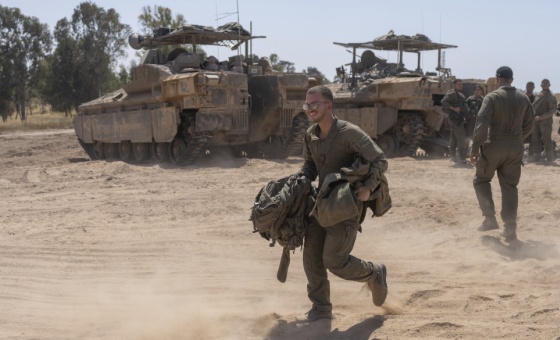This is the last article you can read this month
You can read more article this month
You can read more articles this month
Sorry your limit is up for this month
Reset on:
Please help support the Morning Star by subscribing here
Lynn Brown's boot thumped into the side of the "scab wagon." Her face up to the meshed window of the transit and her fists clenched tight, Lynn howled abuse at the cringing shadowy wretches in their cage.
Other women and children jostled round echoing Lynn's insults and jibes as the scab guards in blue fell out of four vans to hustle them away from the wagon's rear door.
Across a patch of grass the scab's wife, cradling a crying baby, stood outside her front door watching on as the women in the middle of the street jabbed the air with their fingers and chanted: "scab, scab."
The police bodily bounced them down the road.
An elderly veteran pit worker hoarsely shouted his challenge to settle it there and then as a police giant towered over him.
Out from the arse-end of the scab wagon the round-shouldered strike-breaker scurried across the grass like a scolded dog.
His head low, staring at the mud and chin digging into his chest, he hunched his shoulders up as if he could hide.
Pushing the woman and child into the old coal board house he quickly turned. He looked mean and shameless.
A quick V-sign and he was gone, to spend a long night in guarded isolation. His self-imposed curfew started just after 4pm.
As the scab convoy moved off, his collaborators, safe behind their meshed wire and more than 30-strong police escort, bravely made faces at the frustrated women.
Lynn Brown was left squaring up to one of the scab's round-the-clock guards, venting her anger at the unwelcome intruder in her village.
The top of her arm was bright pink. Crushed capillaries marked the first signs of a bruise.
A young teenage girl showed the crescent of deep finger-nail prints in her forearm.
Walking back to the local miners' welfare, chairwoman of the village women's pit support group and pit canteen workers, Aurelia Pugh snapped: "I'd shoot them, they'll never be able to live here when we've won."
Like most others in Elvington she believes the scabs have been given coal board guarantees of new lives when the miners win.
Neither Lynn nor Aurelia would have said boo to a goose eight months ago, say neighbours.
In the small village of Elvington in Kent the strikebreaker Brian Wright is a hated man.
The men point out he's never in his life been down the shaft, like most of the 15 or so going into the local Tilmanstone pit.
"He don't know the colour of coal."
And the women recall the day he evicted his teenage pregnant daughter. She was taken in by a mining family now on strike.
Wright took daughter and child back. Today he hides behind the innocent screaming infant, brandishing it like a shield at his windows before the striking demonstrators.
His other party trick is to wave his wage dockets. It makes his police friends giggle.
Before the miners' strike Elvington was a quiet pit village. There was no crime and the local children were polite to the local bobby. Today there is no local bobby.
Instead, van loads of unwelcome police bring their riot gear from as far away as Dorset, Sussex and Cambridgeshire as well as the capital.
Younger children are now frightened to go to school past the frequent police picket and their questions: "Is your daddy a picket?" The older children are sullen, hostile and ready with lip.
It's all been done in broad daylight, explains Lesley Ives, secretary of the support group.
"As the kids have gone to the post office to get sweets they've seen their dads dragged across the road."
Margaret Halford, miners' welfare caretaker, adds: "The kids are heartbroken, they hate the police."
At the beginning of last month the police put Elvington under siege. The plan was to intimidate the 70 or so mining families.
Mining families standing in their own front gardens were ordered indoors. Others on the streets, including one local farmworker out buying a loaf, were arbitrarily arrested.
Young girls in their early teens were told they'd be picked up for soliciting.
Boys like Ken Pugh, 17, and one of only nine lucky lads taken on in the pit's latest recruiting drive, were beaten where it wouldn't show - and even bitten.
"He wouldn't tell me, his mother, some of the things they did to him," says Aurelia.
A mobile lock-up was parked in the village as the police tried to impose a curfew.
But when strikebreaker Alan Beer fired his 12-bore shotgun over the heads of 16 women, men and children - including Aurelia Pugh - out walking to keep the village open, the police response was to threaten them all with the 1875 Conspiracy and Protection of Property Act for "watching and besetting a house without lawful authority."
Today, the Elvington mining community is united, unintimidated and still walking the streets - unlike the scabs.
The women's support group ended its meeting last week with a silent 10-minute vigil across the road from the scab's house to emphasise the point.
"We're not frightened of them any more," says the self-confessed besetter Aurelia Pugh with contempt.
In the union office it is the women's support group banner which hangs on the wall. It is a justified mark of respect.
Along with the men of Elvington they are fighting to save some 830 jobs at Tilmanstone. It's an all-consuming task and Aurelia jokes that her husband, Jack, a militant member of the pit deputies' union Nacods, is sueing the NUM for divorce - "citing 900 men," she laughs.
Although Tilmanstone and neighbouring pit Snowdown - which the board has admitted it wants shut - are sitting on an untapped seam with an estimated 50-year life, there are strong fears the whole Kent coalfield is threatened with closure.
Till the late '60s Elvington was entirely a pit village. Then the local council took over the coal board houses and now about a third of the 1,200 population are connected with the pit.
But the union owns the local club, empty last week except for the women's group meeting. It also owns the children's playground, the football pitches, bowling green and the doctor's surgery.
If the pit goes, this corner of Kent to the north of Dover will become a deindustrialised unemployment desert. Communities like Elvington will be repalced by commuting stockbrokers.
The determined resistance to the closure plan has called for great sacrifices.
"I've worked since my son was 18 months old," says Lynn. "I've always planned and budgeted, but now I'm penniless."
Her husband Dave is a striking face-worker. Like many other women in the village she is working as a farm labourer to make ends meet.
Lesley Ives sold her caravan and watched a neighbour take her own children, not Lesley's on holiday. As she adds: "We've got nothing left to lose."
But for some women like Jean Powell and Joan Brown the going has been particularly rough.
They both work at the pit in the canteen, are members of the NUM, and are on strike. So are their husbands, Norris and George.
For eight months they have had no income whatsoever. They have lived off food parcels.
Jean's big night out is a lemonade at the women's support group meeting. Joan's daughter keeps her in cigarettes and her son Andrew has paid most of the bills.
"We cropped the garden this year," says Joan, "so that's come in very handy. You can make a meal on vegetables, though I've never before gone without meat on a Sunday."
Jean and Joan go picketing most days - "We do our duty" - but Jean admits it's tiring and depressing worrying every day how to eke out the food parcels to get one main meal.
Her dream of a new stair carpet burst months ago.
"One day your morale is up, another it is down," she says, frankly, adding: "It's miserable - you just have to put a brave face on everything. If you didn't you'd go doo lalley."
With her brother-in-law a scab, life is not made any easier for Jean and Norris, a development ripper. Her in-laws are against the strike.
"You'd think I was the scab," she says bitterly.
Aurelia explains the women's support group is vital and not just for food.
"We keep each other going." She explains: "If one of us needs a moan then they can moan to us.
"What cash is lacking we make up for in community spirit."
And when the strike is over that support will still be vital.
"These women will still have two or three year's hardship before they pull themselves up after this," she adds.
But with all the understandable difficulties going back is out of the question.
"These are the sort of people," explains Aurelia, "Thatcher thought wouldn't come up trumps for Arthur Scargill. Well, they're not fighting for Arthur Scargill, they're fighting for themselves.
"Arthur Scargill," says Aurelia, who thinks he's a hero, "is fighting for what we know we want. We're the ones who will tell Arthur when we go back - when we've won everything.
"This strike won't break till we say so."
And Lynn Brown adds: "When this strike is over it won't end there. What we've been given has got to be returned, paid back."
The meek and mild of eight months ago are now committing themselves to a working-class struggle which must continue in support of other workers' demands.
So, last week, as the women's support group served over 50 strikers' children with a dinner of mashed spuds - the best part of a hundredweight - meat loaf and cabbage followed by Angel Whirl, Aurelia Pugh spoke for them all: "Thatcher says a year, we'll give her two or three if she likes.
"We've won," she stated, "we're just waiting for Thatcher to admit it.
"She thinks she's the iron lady, well, she's met nothing yet - the women of Kent are not for turning."
This feature appeared midway through the year-long miners' strike of 1984-85 against the Tories' massacre of the coalfields. David Whitfield was deputy editor of the Morning Star from the early to late 1980s.









